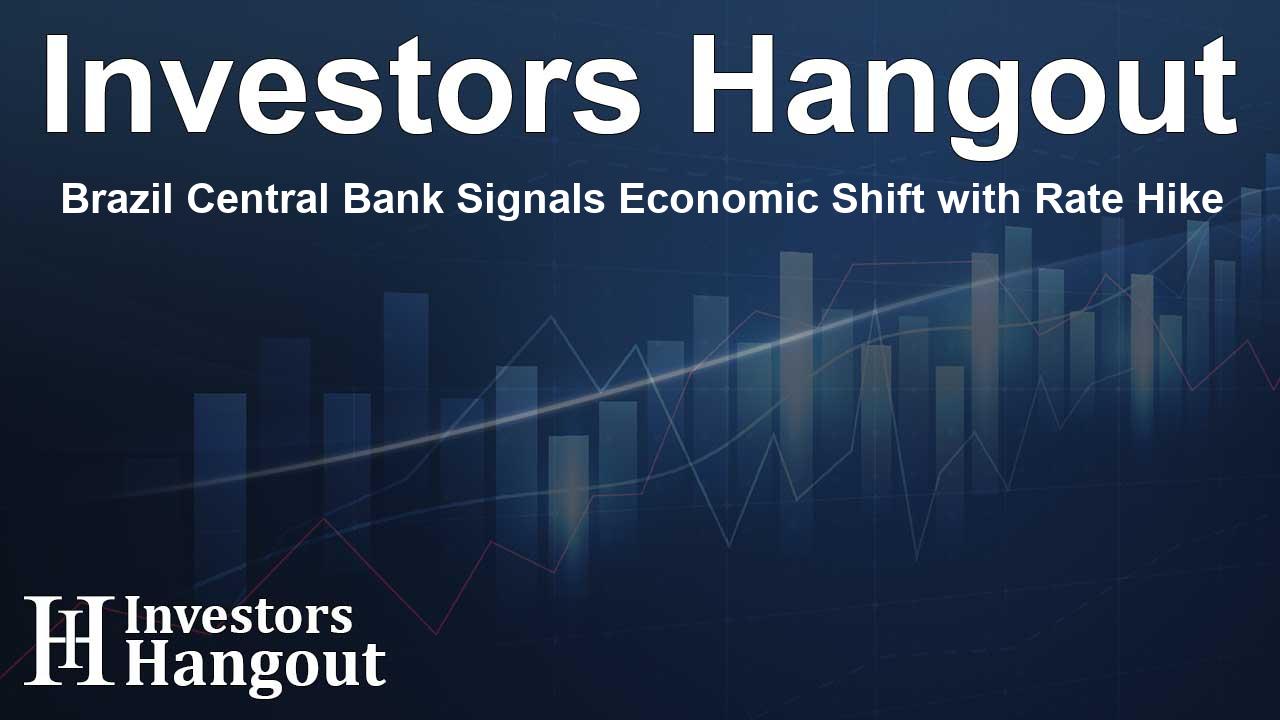Brazil Central Bank Signals Economic Shift with Rate Hike

Brazil Central Bank Initiates Rate-Hiking Cycle
In a significant move for the country's monetary policy, Brazil's central bank has launched an interest rate-hiking cycle with a 25 basis point increase. This marks the first hike in over two years, reflecting the central bank's response to a challenging inflation outlook that is exacerbated by strengthening economic conditions and ongoing fiscal concerns.
COPOM's Decision on Benchmark Interest Rate
The bank's monetary policy committee, often referred to as Copom, voted unanimously to raise the benchmark Selic interest rate to 10.75%. This move was anticipated by most analysts, as a Reuters survey of 40 economists indicated that 36 expected an uptick while only a few suggested the bank would keep rates unchanged or increase them more significantly.
Contrasting Approaches in Global Monetary Policy
While the U.S. Federal Reserve initiated its easing cycle, Brazil's central bank took a diverging path by signaling more rate hikes in the future. Copom's policy statement emphasized that the pace of upcoming adjustments will hinge on their commitment to steering inflation back to target rates and will respond adaptively to ongoing inflation dynamics.
Economic Activity Influencing Rate Decisions
This increase in rates follows a period where the bank maintained its policy rate at 10.50% over the preceding months, after several reductions from last year's peak of 13.75%. The decision for this hike was primarily shaped by second-quarter economic activity data, which far surpassed expectations. Factors such as a robust labor market and increasing wages contributed significantly to this optimistic economic outlook.
Building Expectations for Future Rate Adjustments
Anticipation for the central bank's rate hike gained momentum after policymakers hinted at a likely increase late last month. Following the release of central bank minutes indicating a resolve to increase borrowing costs amid rising inflation risks, expectations solidified. The proactive stance from Brazil's monetary authorities comes as they look to stabilize the economy against any potential inflationary pressures ahead.
Frequently Asked Questions
What are the implications of Brazil's rate hike?
The rate hike aims to combat inflation and stabilize the economy, possibly affecting lending rates and consumer spending.
How long has it been since Brazil increased interest rates?
This is Brazil's first rate hike since June 2022, marking a significant shift in monetary policy.
What factors influenced the central bank's decision?
Economic growth, a strong labor market, and rising wages contributed to the decision to increase rates.
How will this rate change affect consumers?
Consumers may see changes in borrowing costs, which could influence spending and investment decisions.
What is the central bank's inflation target?
The central bank is committed to reaching its inflation target, which will heavily influence future monetary policy adjustments.
About Investors Hangout
Investors Hangout is a leading online stock forum for financial discussion and learning, offering a wide range of free tools and resources. It draws in traders of all levels, who exchange market knowledge, investigate trading tactics, and keep an eye on industry developments in real time. Featuring financial articles, stock message boards, quotes, charts, company profiles, and live news updates. Through cooperative learning and a wealth of informational resources, it helps users from novices creating their first portfolios to experts honing their techniques. Join Investors Hangout today: https://investorshangout.com/
Disclaimer: The content of this article is solely for general informational purposes only; it does not represent legal, financial, or investment advice. Investors Hangout does not offer financial advice; the author is not a licensed financial advisor. Consult a qualified advisor before making any financial or investment decisions based on this article. The author's interpretation of publicly available data shapes the opinions presented here; as a result, they should not be taken as advice to purchase, sell, or hold any securities mentioned or any other investments. The author does not guarantee the accuracy, completeness, or timeliness of any material, providing it "as is." Information and market conditions may change; past performance is not indicative of future outcomes. If any of the material offered here is inaccurate, please contact us for corrections.